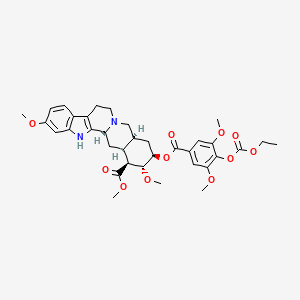
In continuation of my update on metformin
A team of researchers from University of California, San Diego, have successfully used gut organoids in their lab to show the effects of medications to treat conditions such as “leaky gut”. The study was titled, “The stress polarity signaling (SPS) pathway serves as a marker and a target in the leaky gut barrier: implications in aging and cancer,” and was published in the journal Life Science Alliance today..
The team found that they could use 3 dimensional gut cells in a Petri dish in the form of a gut organoids and test the drugs for their efficacy on leaky guts. These organoids can successfully recreate the molecular system within the lab including intestinal lining cells etc. These cells are normally sealed to prevent leakage. In certain disease conditions, the seals may be dysfunctional leading to leaky guts, wrote the researchers. These conditions are commonly seen in cancers and among the elderly, they explained. In this condition there may be leakage of microbes as well as vital molecules from the intestines into the abdominal cavities.
To create these organoids the team used donated intestinal cells from the patients. The intestines typically have crests and crypts with peaks and valleys. From the crypts they could isolate stem cells. These cells were used to create the three dimensional organoids within the labs, the team wrote. The stem cells grew to become four types of cells that normally are noted within the gut. These cells then rolled up to become mini guts within the Petri dishes they wrote. Now the organoids were capable of being tested.
University of California San Diego School of Medicine researchers thus used 3D models of human intestines in the petri dishes. These cells were donated by real patients suffering from leaky gut. The cells were created into 3D mini organoids so that they could mimic the real intestines. The team then found certain biomarkers that were characteristic of intestines that had the leakage problem. The team speculates that these markers could help researchers diagnose this condition early and also track the progression of the disease over a course of time.
For their study they used a commonly used diabetes medicine Metformin to try and plug the leaks within the intestinal walls. The study led by Pradipta Ghosh, MD, professor of cellular and molecular medicine at UC San Diego School of Medicine and Moores Cancer Center, and senior author Soumita Das, PhD, associate professor of pathology at UC San Diego School of Medicine, revealed that this commonly used drug could help patients with a leaky gut.
Ghosh and Das had earlier, in another study showed that a mechanism called the stress-polarity signaling pathway could help close the gaps between the cells and prevent the leakage. In that study they had also noted that the connections and bonds between the cells came apart due to the stress.
This new study revealed that Metformin may work to activate certain chemical reactions that could tighten these junctions and thus prevent the leakage. The team says that their success has been seen only in the Petri dishes on the mini organoids of the gut yet. They need to replicate it in humans to see if the drug could actually help patients with leaky gut conditions. They added however that the success of the drug in these organoids is a big step in proving that the drug could actually help. Metformin, they wrote raise the levels of a protein called occluding that can tighten the junctions between cells. If successful, this could help a large number of patients, they explained.
Ghosh said, “Lots of research is done in mice that are inbred so that they are genetically identical, all in the same cage, eating the same diet, in order to remove these variables from the studies. But lab mice are far more standardized than the same human from day to day, or patients we see in the clinics. Here, our model is a better representation of humanity. On the other hand, it also means that each organoid is its own unique experiment. We have to test many organoids to be able to make any claim, which we did in our study.” Das added, “I think you'd be hard pressed to find a disease in which systemic inflammation is not a driver. That's why, even though there are so many things we still don't know, we're excited about the broad potential this model and these findings open for developing personalized leaky gut therapeutics that target AMPK and the stress-polarity signaling pathway.”
There may be several disease conditions that lead to weakening of the bonds between the cells and the junctional cells between two intestinal cells, wrote the researchers. This leads to leakage of the molecules from within the intestines as well as leakage of microbes. This can trigger the immune system leading to a state of chronic inflammation. Inflammatory bowel diseases such as ulcerative colitis and Crohn’s disease as well as other conditions such as liver damage, cancers, diabetes, atherosclerosis, arthritis and even dementia could be associated with leaky gut cells say researchers. Till date there have been no way this problem could be studied, let alone solved, wrote the researchers. This new study finally paves a way where the condition could be replicated in the lab and studied at its molecular level.
For this study the team took the mini organoids and opened up the rolled balls to expose the intestinal surface. Over these they used bacteria and other stressors to weaken the junctional cells and create leaky openings. Now they could study the molecular mechanisms as well as the drugs which could help tightening these bonds between the cells to prevent leakage.
https://www.life-science-alliance.org/content/3/3/e201900481
https://en.wikipedia.org/wiki/Metformin





